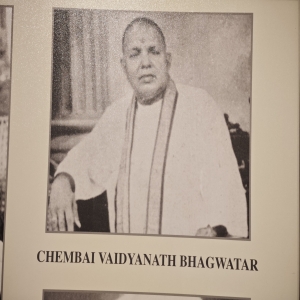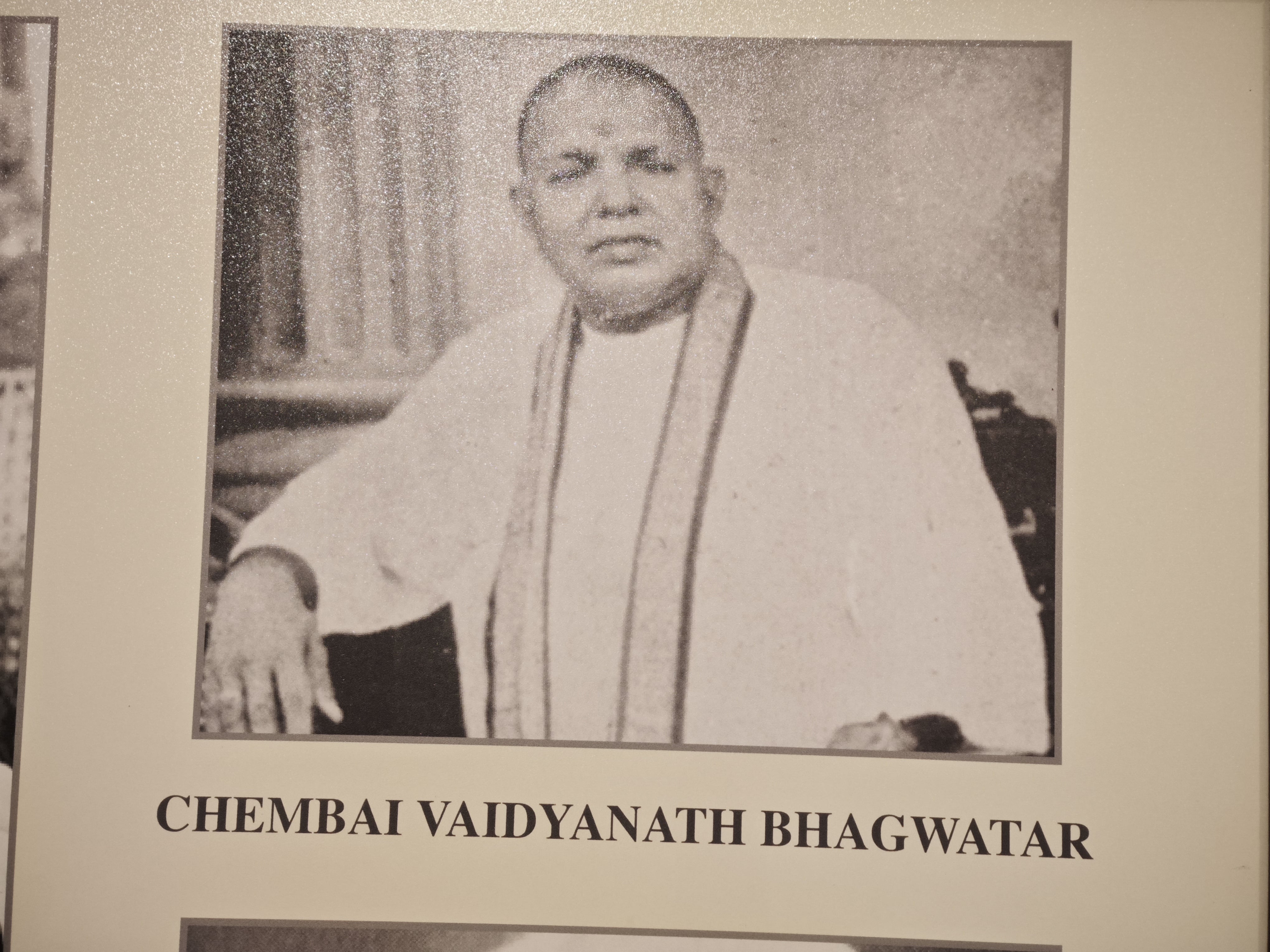
 A. J. Philip
A. J. Philip

Arangettam, meaning "ascending the stage," marks the debut of a dancer or singer in the classical arts. This first public performance signifies the culmination of years of rigorous training, discipline, and dedication under a guru. Traditionally celebrated in South Indian classical dance forms like Bharatanatyam and music like Carnatic, the arangettam is both a rite of passage and a declaration of readiness.
More than a mere recital, arangettam symbolises the moment when the student transitions from a learner to a performer, poised to share their art with the world. It is an emotional event attended by family, friends, and art lovers who gather to witness this pivotal milestone. For the artist, it represents a sacred commitment to a lifelong journey in the arts, embodying devotion, humility, and deep respect for the lineage and heritage of Indian classical traditions.
I have been fortunate to attend several arangettam performances by the children of my friends, each a moving experience. But I never imagined I would one day have my own arangettam—and that too as a self-described septuagenarian!
Anyone who has ever asked me what I wanted to become in my "next life" would have heard me say that I wanted to be a singer. The earliest concert I attended was by Chembai Vaidyanatha Bhagavatar, an icon of Carnatic music. In his eighties then, Chembai's vocal strength and effortless range left a lasting impression on me.
Just a week ago, I was thrilled to see his photograph at a photo exhibition organised by the Kendriya Lalit Kala Akademi in New Delhi. That is when I learnt that Chembai received the Akademi award in the early 1950s. I remember KJ Yesudas, another great Carnatic vocalist, saying that the admiration he received from Chembai was the highest praise he could have hoped for. He considered himself a disciple of Chembai.
My connection to Carnatic music began even earlier, though. Growing up at Valanchuzhy in Pathanamthitta, Kerala, I was awakened each morning by the strains of MS Subbulakshmi's Suprabhatam, which floated through the air from a nearby temple. Her voice, which captivated all who heard it, had even moved Jawaharlal Nehru to comment that while he was just the Prime Minister, she was the empress of music. Years later, I read her biography written by two persons, TJS George and Manjulamala MV.
In Chandigarh, I had a South Indian colleague who lived nearby, and it was through him that I learned of the legendary Carnatic composer Thyagaraja. His father-in-law, a retired naval officer, mentioned that their family belonged to Thyagaraja's lineage. From this, my respect for Thyagaraja only deepened, especially as I heard of his life and dedication. There is a road and a stadium named after the great composer in the National Capital.
Thyagaraja (1767–1847) is revered as one of the greatest composers in Carnatic music. Hailing from the state of Tamil Nadu, he was not only a gifted composer but also a deeply spiritual man whose songs were offerings to his beloved deity, Lord Rama. His devotion set him apart from his contemporaries.
Thyagaraja turned down an invitation to be a court musician in Thanjavur, citing his commitment to sing solely for Rama. Despite the material sacrifices this choice entailed, Thyagaraja remained resolute, contributing over 700 compositions that form the backbone of the Carnatic music repertoire.
Each year, his birthday is commemorated in grand style at Thiruvarur, around 40 kilometres from Thanjavur. The Thyagaraja Aradhana brings together musicians from all over the world to sing his compositions in chorus, celebrating his life and work on the banks of the Kaveri River.
My wife and younger son joined me on a pilgrimage to Thiruvarur, where we felt firsthand the power of his compositions. Among his most famous works are the Pancharatna Kritis, a set of five compositions in different ragas—Nata, Gaula, Arabhi, Varali, and Sri. These are some of the finest pieces in Carnatic music, revered for their complexity and melodic beauty. We were given the lyrics in Devanagari script, allowing me to sing along, though my voice was likely drowned out by the hundreds of musicians rendering his works.
Carnatic music, one of India's two major classical music traditions, is rooted in the South and has a distinct style characterised by intricate rhythmic and melodic structures. Unlike Hindustani music, the classical tradition of North India, Carnatic music places a strong emphasis on compositions (kritis) rather than the extensive improvisations typical of Hindustani performances.
Carnatic music is more devotional in essence, often celebrating Hindu gods and goddesses, and has a vast repertoire of compositions that are attributed to specific composers, the most prominent being the "Trinity" of Carnatic music—Thyagaraja, Muthuswami Dikshitar, and Syama Sastri.
While Hindustani music gives significant space for a performer to explore a raga freely, often over a long stretch, Carnatic music compositions are relatively shorter but densely packed with musical phrases and intricate rhythmic patterns. A typical Carnatic concert is structured around a main piece, which is the focal point of extensive improvisation, followed by lighter compositions.
Moreover, Carnatic music employs a higher degree of ornamentation (gamakas) and intricate rhythmic patterns (tala), reflecting the South Indian aesthetic's emphasis on precision and complexity.
This distinction is vividly illustrated in Thyagaraja's compositions, where the lyrics and melody together convey profound spiritual meaning. Each line of his work is layered with nuances of devotion and musical sophistication, making his compositions both a form of worship and an intricate piece of art.
I also fondly remember interviewing Yesudas, which I turned into a profile for The Hindustan Times, complete with a caricature by the late Sudhir Tailang. Another amusing memory is a conversation I once had with singer Daler Mehndi—though I didn't realise who he was at the time! He mentioned living in both the US and India, which didn't strike a chord with me.
It was only when a group of young fans gathered around him and urged him to sing that I recognised him as a singer. Years later, my elder son, then studying at St Stephen's College, became friends with him. Thanks to support from the Daler Mehndi Foundation, he was able to install bins on campus to segregate waste. Those bins remained there for years.
One of my favorite songs was Kamukara Purushothaman's "Aatmavidyalayame." Philosophical in tone, the song reflects on the transient nature of human life. Someone wealthy and powerful today could be a street beggar tomorrow.
When I bought my first music player, I included a cassette of Purushothaman's best songs. Eventually, the cassette found its way into my car stereo. A friend who travelled with me once was surprised to learn that I loved Purushothaman's voice. Decades later, I was pleased to learn that the late Leela Omchery was his sister.
Today, I write this on the first death anniversary of Leela Chechi, as I used to call her. It was at her house that I heard her dog recite "Sa Ri Ga Ma Pa"—I wrote a piece for The Indian Express about this remarkable canine who learned the basic Carnatic music notes.
My connection with musician Manakkala Gopalakrishnan was through Leela Omchery, under whom he earned an MA in music from Delhi University before completing a PhD from Kannur University. We shared a mutual friend, Dr VP Joy, who was then Chief Secretary of Kerala. Gopalakrishnan, who was also an academic, was instrumental in reforming Kerala's school curriculum, suggesting that poetry would resonate more if set to Carnatic music. I once organised an event in New Delhi where he performed Joy Vazhayil's poems in Carnatic style.
Gopalakrishnan was accompanied by Kadammanitta Prasanna Kumar, who skilfully explained the meaning of the poems in accessible but energetic prose.
While Thyagaraja is known for his musical compositions, Ulloor S Parameswara Aiyer (1877–1949) is celebrated as one of the giants of Malayalam literature. He is regarded as one of the "triumvirate" of Malayalam poetry, along with Vallathol Narayana Menon and Kumaran Asan. Born in a modest Tamil Brahmin family in Kerala, Ulloor rose from humble beginnings as a government school teacher to the esteemed position of Diwan Peshkar of Travancore, equivalent to the role of Chief Secretary.
Ulloor was a polymath with an impressive command of multiple languages, including Malayalam, Tamil, Sanskrit, and English. His History of Malayalam Literature remains a cornerstone work for students of the language. Known for his deep spirituality and reformist views, he played a significant role in drafting the historic Temple Entry Proclamation, which granted Hindus of all castes access to temples in Travancore.
His progressive stance, however, led to his excommunication from the Brahmin community, to which he responded with remarkable equanimity, saying, "Till yesterday I was a Brahmin. From today onwards I will be a human being."
Despite his official duties, Ulloor was prolific in his literary pursuits. His poems are known for their depth and complexity, often addressing themes of love, philosophy, and spirituality.
Ulloor's most accessible and famous work, Premasangeetham (The Song of Love), stands apart for its simplicity and universal appeal. Written in 67 lines, the poem explores love as a divine force that transcends boundaries, portraying love as the ultimate ex
Premasangeetham is a profound meditation on the nature of love, encompassing various forms of affection, from the devotional (bhakti) to the romantic (anurag) to the compassionate (daya). In Ulloor's view, love is a life-giving force, likened to the radiance of the full moon that showers its nectarian essence overall.
Love, in its highest form (prema), transcends individual and societal differences, becoming a unifying principle for all humanity. Ulloor's language is deceptively simple, yet each verse carries an underlying depth that requires reflection to fully appreciate.
In these divisive times, the relevance of Premasangeetham cannot be overstated. This is one of the reasons why when two schools in Delhi—St. Gregorios Higher Secondary School in Dwarka and Kerala School in Mayur Vihar—expressed interest in presenting Premasangeetham to their students, we enthusiastically took on the challenge.
The musician Manakkala Gopalakrishnan, who was in Delhi to receive a national award instituted by Layam Orchestra, readily agreed to perform while I took on the role of translating and interpreting the 12 stanzas of the poem, each set in a different Carnatic raga. The task was monumental, but my admiration for Premasangeetham and the message of universal love it embodies saw me through. The audience's warm response confirmed that Manakkala Gopalakrishnan's rendition was a success, and the two events marked my own arangettam as an accompanist to a Carnatic musician.
Reflecting on these experiences, I am reminded of the transformative power of music and literature. Both have the potential to uplift, inspire, and bring people together. In today's fast-paced world, the calming influence of classical music—whether Carnatic or Hindustani—provides an opportunity for introspection and connection to something greater than ourselves. The philosophies of Thyagaraja and Ulloor, each in their unique way, resonate with timeless messages of devotion, sacrifice, and love.